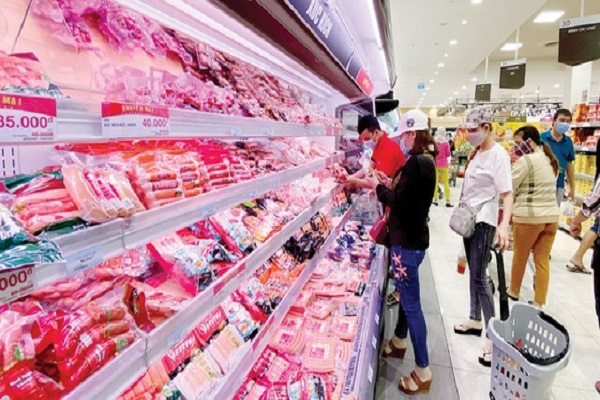2019-12-31 08:34:25
Proteins are amino acids that are essential for our bodies to function properly. But how much do we need? Should we consume more? Are protein foods…

Proteins are large molecules that our cells need to function properly. They consist of amino acids. The structure and function of our bodies depend on proteins. The regulation of the body's cells, tissues, and organs cannot happen without them.
Muscles, skin, bones, and other parts of the human body contain significant amounts of protein, including enzymes, hormones, and antibodies.
Proteins also work as neurotransmitters. Hemoglobin, a carrier of oxygen in the blood, is a protein.
What are proteins?
Protein molecules are essential for the functioning of every cell in the body. The body synthesizes some proteins foods we eat.
Proteins are long chains of amino acids that form the basis of all life. They are like machines that make all living things, whether viruses, bacteria, butterflies, jellyfish, plants, or human function. The human body consists of around 100 trillion cells. Each cell has thousands of different proteins. Together, these cause each cell to do its job. The proteins are like tiny machines inside the cell.
Amino acids and proteins
Protein consists of amino acids, and amino acids are the building blocks of protein. There are around 20 amino acids.
These 20 amino acids can be arranged in millions of different ways to create millions of different proteins, each with a specific function in the body. The structures differ according to the sequence in which the amino acids combine.
The 20 different amino acids that the body uses to synthesize proteins are: Alanine, arginine, asparagine, aspartic acid, cysteine, glutamic acid, glutamine, glycine, histidine, isoleucine, leucine, lysine, methionine, phenylalanine, proline, serine, threonine, tryptophan, tyrosine, and valine.
Amino acids are organic molecules that consist of carbon, hydrogen, oxygen, nitrogen, and sometimes sulfur.
It is the amino acids that synthesize proteins and other important compounds in the human body, such as creatine, peptide hormones, and some neurotransmitters.
Types of protein
We sometimes hear that there are three types of protein foods:
- Complete proteins: These foods contain all the essential amino acids. They mostly occur in animal foods, such as meat, dairy, and eggs.
- Incomplete proteins: These foods contain at least one essential amino acid, so there is a lack of balance in the proteins. Plant foods, such as peas, beans, and grains mostly contain incomplete protein.
- Complementary proteins: These refer to two or more foods containing incomplete proteins that people can combine to supply complete protein. Examples include rice and beans or bread with peanut butter.
What do proteins do?
Proteins play a role in nearly every biological process, and their functions vary widely. The main functions of proteins in the body are to build, strengthen and repair or replace things, such as tissue. They can be:
- structural, like collagen
- hormonal, like insulin
- carriers, for example, hemoglobin
- enzymes, such as amylase
- All of these are proteins.
Keratin is a structural protein that strengthens protective coverings, such as hair. Collagen and elastin, too, have a structural function, and they also provide support for connective tissue. Most enzymes are proteins and are catalysts, which means they speed up chemical reactions. They are necessary for respiration in human cells, for example, or photosynthesis in plants.
Sources
Rice and beans together provide complete protein. Protein is one of the essential nutrients, or macronutrients, in the human diet, but not all the protein we eat converts into proteins in our body.
When people eat foods that contain amino acids, these amino acids make it possible for the body to create, or synthesize, proteins. If we do not consume some amino acids, we will not synthesize enough proteins for our bodies to function correctly.
There are also nine essential amino acids that the human body does not synthesize, so they must come from the diet.
All food proteins contain some of each amino acid, but in different proportions.
Gelatin is special in that it contains a high proportion of some amino acids but not the whole range.
The nine essential acids that the human body does not synthesize are: histidine, isoleucine, leucine, lysine, methionine, phenylalanine, threonine, tryptophan, and valine.
Foods that contain these nine essential acids in roughly equal proportions are called complete proteins. Complete proteins mainly come from animal sources, such as milk, meat, and eggs.
Soy and quinoa are vegetable sources of complete protein. Combining red beans or lentils with wholegrain rice or peanut butter with whole meal bread also provides complete protein.
The body does not need all the essential amino acids at each meal, because it can utilize amino acids from recent meals to form complete proteins. If you have enough protein throughout the day, there is no risk of a deficiency. In other words, the recommended nutrient is protein, but what we really need is amino acids.
- Operator: (8428) 6280 3333, ext. 0
- Address: No. 3, 17A Street, Binh Tri Dong B Ward, Binh Tan Dist. (Next to AEON Mall Binh Tan). Ho Chi Minh City.
- Website: https://cih.com.vn/en/
- Email: This email address is being protected from spambots. You need JavaScript enabled to view it.
Disclaimer:
As a service to our readers, City International Hospital (CIH) provides access to our library of archived content. Please note the date of last review on all articles. No content on this site, regardless of date, should ever be used as a substitute for direct medical advice from your doctor or other qualified clinician.










